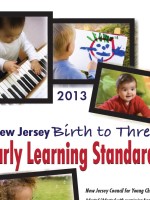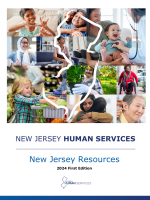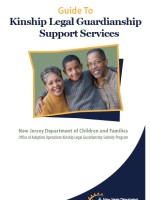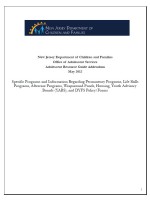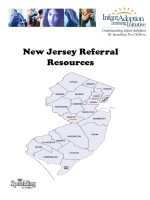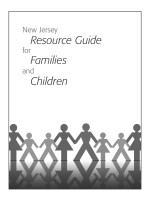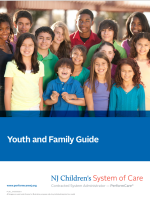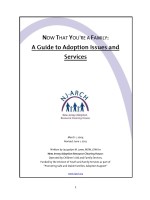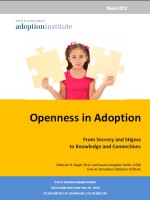The New Jersey Council for Young Children was established in January 2010 to ensure collaboration and coordination among early childhood programs in the State of New Jersey. The Birth-to-Eight Early Learning and Development Standards Committee of the Council has responsibility for the development of a coherent set of early learning and development and program standards… [read more]
New Jersey Birth to Three Early Learning Standards
New Jersey DDS Resource Directory
New Jersey Department of Children and Families
New Jersey Department of Children and Families Office of Adoption Operations Kinship Legal Guardianship Subsidy Program
New Jersey Department of Children and Families Office of Adolescent Services – Adolescent Resource Guide Addendum May 2012
Specific Programs and Information Regarding Permanency Programs, Life Skills Programs, Aftercare Programs, Wraparound Funds, Housing, Youth Advisory Boards (YABS), and DCP&P Policy/Forms. This addendum is a supplement to the “CICIC Adolescent Resource Guide May 2012” and provides program and contact information for various adolescent services. In addition, this addendum will further detail wraparound funds (also known… [read more]
New Jersey Referral Resources
New Jersey Resource Guide for Families and Children
The purpose of this Guide is to provide contact information to families in need of services and to assist them in understanding the resources that may be available to them. The Resource Guide also aims to assist individuals who advocate on behalf of children such as law guardians, CASA volunteers, case managers and others who… [read more]
NJ Children System of Care, Youth and Family Guide.
Now That You’re A Family: A Guide to Adoption Issues and Services
NJ ARCH has created a useful handbook to help you with your adoption needs. This easy-to-read 34-page handbook covers issues in adoption including: lifelong adoption, behavioral and developmental needs, and adoption resources. To view and print an electronic, PDF version of this handbook, please click on the handbook cover to the left. If you would… [read more]
NY: No home of their own: Shortage of foster homes reaches critical levels
➡ From Child Welfare Information Gateway NJ: NY: No home of their own: Shortage of foster homes reaches critical levels Albany Democrat-Herald – December 18, 2016 It’s been a familiar story as Linn and Benton counties have mirrored two statewide trends for at least the past five years: a shrinking number of certified foster homes… [read more]
Openness in Adoption – From Secrecy and Stigma to Knowledge and Connections
This report is the first in a series the Institute plans to publish that will address the phenomenon of openness in domestic infant adoptions. It summarizes research knowledge on the topic and presents findings from a survey of 100 infant adoption programs in the U.S. regarding their practices around openness and the qualities that facilitate… [read more]

